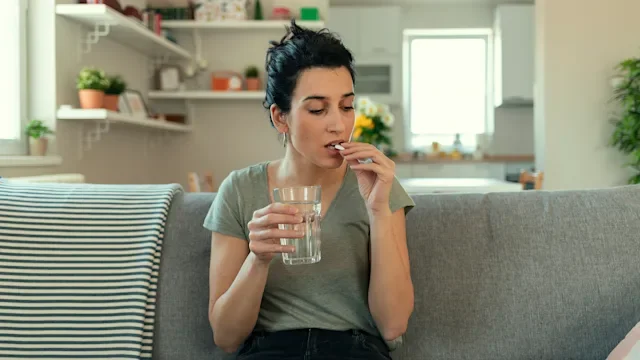Key takeaways:
Invokana (canagliflozin) is a sodium-glucose co-transporter 2 (SGLT2) inhibitor. It can be prescribed to treat Type 2 diabetes. Invokana’s uses also include heart and kidney protection for certain people with diabetes.
The most common side effects of Invokana are yeast infections in women and urinary tract infections (UTIs). More serious side effects include a higher chance of leg and foot amputations, dehydration, and life-threatening genital infections.
There are many ways to save on Invokana. If you’re eligible, a manufacturer savings card can help you access Invokana for as little as $0 per month. A patient assistance program is also available.
Save on related medications
If you have Type 2 diabetes, you likely know there are a variety of treatment options available. Many people take one or more oral medications to manage this health condition. One medication class growing in popularity is sodium-glucose co-transporter 2 (SGLT2) inhibitors.
Invokana (canagliflozin) was FDA approved in 2013 as the first SGLT2 inhibitor. But what are Invokana’s uses, and what do you need to know before taking it?
Below, we’ll cover 10 things you should know about Invokana — including who can take it, how it works, and what side effects it may cause.
1. What is Invokana used for?
Invokana is FDA approved for adults with Type 2 diabetes. It can help lower your blood glucose (sugar) when combined with a diabetes-friendly diet and exercise.
But Invokana has other uses as well. It’s been shown to reduce the risk of worsening heart problems for certain people. Invokana is also FDA-approved to lower the risk of heart attack, stroke, and even death in people with Type 2 diabetes and heart disease.
Invokana can also be used for people with kidney disease due to Type 2 diabetes (diabetic nephropathy). For people with this type of kidney disease, Invokana is FDA-approved to lower the risk of:
Worsening kidney disease
Death due to heart problems
Being hospitalized for heart failure
And even though Invokana is only approved for people with Type 2 diabetes, experts recommend that some people with heart failure take an SGLT2 inhibitor — whether they have diabetes or not. This would be considered an off-label use of Invokana. But it’s supported by strong clinical evidence.
2. How does Invokana work for diabetes?
Invokana works by removing extra glucose from your blood through the kidneys. You then pee out the extra glucose. More specifically, Invokana attaches to SGLT2, a protein in one area of the kidney. This intentionally stops the protein from working properly.
SGLT2’s job in the body is to reabsorb glucose into the bloodstream. By blocking SGLT2, Invokana stops the body from reabsorbing it. This leads to less glucose in the blood. Over time, Invokana can help lower your hemoglobin A1C (HbA1C or A1C) — your average glucose over 3 months.
But lowering blood glucose isn’t the only way Invokana works. It also prevents sodium (a type of salt) from going back into the blood. This lowers pressure in your kidneys, helping to prevent damage over time. SGLT2 inhibitors are also thought to provide heart protection by improving blood flow and reducing inflammation, among other effects.
3. What is the typical Invokana dosage?
Invokana comes as a 100 mg and 300 mg oral tablet. The starting dosage is usually 100 mg every day before your first meal of the day.
Your healthcare provider will likely check certain blood tests periodically during treatment. They’ll make sure your kidneys are functioning normally. And they’ll check to see if Invokana has helped lower your A1C.
If your kidneys are working well but your A1C isn’t within your goal range, your provider may raise your dose. The maximum dosage is 300 mg once daily for most people. The maximum recommended dosage for people with kidney issues is 100 mg once daily.
4. What are the potential side effects of Invokana?
The most common side effect of Invokana is yeast infections in women. These occur because Invokana raises the amount of glucose in the urine. This creates an environment where yeast and bacteria can grow more easily. Invokana can also cause male yeast infections.
Other common side effects of Invokana include:
Greater urge to urinate
Greater thirst
Constipation
Nausea
Vaginal itching
Some studies have shown that Invokana can cause more serious side effects. These are rare. Invokana has been linked to:
A higher risk of leg and foot amputations
Extreme fluid loss and dehydration
Low blood pressure
Ketoacidosis, a serious complication where blood glucose is dangerously high
Serious kidney infections
Life-threatening infections in the genital area
A higher risk of bone fractures
Low blood glucose (hypoglycemia), especially when combined with certain other diabetes medications
5. How effective is Invokana for diabetes?
Invokana’s initial approval was based on the results of several clinical trials. In the trials, people taking Invokana had an average of about a 1% reduction in A1C over 26 weeks (about 6 months). What’s more, significantly more people taking it were able to get their A1C under 7%, compared to those taking a placebo (sugar pill). Having an A1C under 7% is a typical A1C goal for people with diabetes.
6. Can I take Invokana if I also take insulin?
Yes, but your healthcare provider may lower your dose of insulin. This can help prevent or limit hypoglycemia.
On its own, Invokana has a low risk for hypoglycemia. But when combined with insulin, this risk goes up. To help manage this interaction, your provider may ask you to check your blood glucose at home more often.
If you’re noticing lower glucose levels than usual, tell your provider. They may suggest reducing the amount of insulin you inject. They may also recommend insulin dose changes up front when you first start Invokana.
7. Can Invokana can be used with other medications for diabetes?
Yes. In fact, it’s common to see Invokana added to an existing diabetes medication regimen. But similar to combining Invokana with insulin, you may need some medication dosage changes.
Taking Invokana with certain oral diabetes medications has a greater risk for hypoglycemia. These include sulfonylureas, such as glipizide, and meglitinides, such as repaglinide. You may need a lower dose of these medications after starting Invokana. You may also be told to check your blood glucose at home more regularly.
Most other oral and injectable diabetes medications have a lower risk for hypoglycemia. So combining them with Invokana may be less concerning. But hypoglycemia is still always a possibility to be aware of. You may or may not need dosage changes to one or more of your medications. This will vary depending on your health history and personal risk factors.
Examples of other diabetes medications that have a lower risk of hypoglycemia include:
Metformin
A glucagon-like peptide-1 (GLP-1) agonist like Ozempic (semaglutide)
Mounjaro (tirzepatide)
A gliptin like Januvia (sitagliptin)
A glitazone like Actos (pioglitazone)
But one combination you wouldn’t see is taking Invokana with another SGLT2 inhibitor, such as Jardiance (empagliflozin). Taking more than one SGLT2 inhibitor at a time can raise your risk of serious side effects, such as dehydration.
8. Does Invokana cause weight loss?
Yes, Invokana can cause weight loss as a side effect. In studies, people taking SGLT2 inhibitors experienced about 4 lbs to 6 lbs of weight loss. People generally start noticing weight changes about 6 weeks after starting these medications.
For many people with Type 2 diabetes, this can be an added benefit when taking Invokana. But if weight loss is a priority when it comes to your overall diabetes treatment plan, this likely wouldn’t be the first choice. Mounjaro and GLP-1 agonists, such as Ozempic, tend to be preferred in these cases. These injectable medications lead to significantly more weight loss than SGLT2 inhibitors.
9. Does Invokana come in a generic form?
Not yet. Invokana is only available as a brand-name medication right now. Invokana’s patent isn’t due to expire until at least 2027. So it will still be several years until we see a generic version on pharmacy shelves.
10. How can I save on Invokana?
There are ways to save on Invokana, which is only available as a brand-name medication. GoodRx can help you navigate between patient assistance programs and copay savings cards to save money on your prescription.
Save with a copay savings card. If you have commercial insurance, you may be eligible to pay as little as $0 per month for Invokana using a savings card from the manufacturer.
Save with patient assistance programs. If you’re uninsured, you may be eligible for Invokana's patient assistance program, which offers the medication free of cost.
The bottom line
Invokana (canagliflozin) is a sodium-glucose co-transporter 2 (SGLT2) inhibitor. Invokana’s uses include the treatment of Type 2 diabetes, as well as heart and kidney protection for certain people. Invokana can be taken by itself or combined with other diabetes medications, like metformin. It’s been shown to lower blood glucose levels, help people lose weight, and lower the risk of worsening heart and kidney problems.
The most common side effect of Invokana is yeast infections in women and urinary tract infections. It’s also linked to rare but serious side effects. These include a higher risk of leg and foot amputations, dehydration, and life-threatening genital infections.

Why trust our experts?



References
American Diabetes Association. (n.d.). Table 9.2: Medications for lowering glucose, summary of characteristics.
American Diabetes Association. (n.d.). Table 9.3: Use of glucose-lowering medications in the management of type 2 diabetes.
ElSayed, N. A., et al. (2022). Pharmacologic approaches to glycemic treatment: Standards of Care in Diabetes—2023. Diabetes Care.
Heidenrich, P. A., et al. (2022). 2022 AHA/ACC/HFSA guideline for the management of heart failure: Executive summary: A report of the American College of Cardiology/American Heart Association Joint Committee on Clinical Practice Guidelines. Journal of the American College of Cardiology.
Janssen Pharmaceutical Companies of Johnson & Johnson. (2023). Information about our pharmaceutical patent portfolio.
Janssen Pharmaceuticals, Inc. (2023). Invokana canagliflozin tablet, film coated [package insert].
Lopaschuk, G. D., et al. (2020). Mechanisms of cardiovascular benefits of sodium glucose co-transporter 2 (SGLT2) inhibitors. JACC: Basic to Translational Science.
Padda, I. S., et al. (2023). Sodium-glucose transport protein 2 (SGLT2) inhibitors. StatPearls.
Raritan, N. J. (2013). U.S. FDA approves Invokana (canagliflozin) for the treatment of adults with type 2 diabetes. Johnson & Johnson.

















